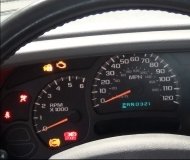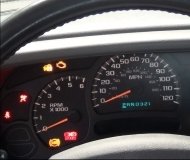I have a 2000 Honda Accord (VTEC SE auto) with 65,000 miles on it. The car was converted to lpg (dual fuel) before I bought it.
The car will not idle properly at any point under either lpg or unleaded. It appears to be a basic vacuum or timing problem, but two mechanics (lpg installers) have now given up on it. There are no fault codes, and as far as I'm told, the MAP sensor is fine. The cylinders seem to have good compression and had no leakage either.
Today the car went to the Honda dealer who rang me back a few hours later to say that there are no fault codes, so I should take the car to an lpg specialist.
I really feel like I have a good car with a fixable problem. But after 3 months of trying with no results, I'm beginning to lose hope.
Any and all advice is welcome.
Thanks.
Friday, September 22nd, 2006 AT 7:30 PM



